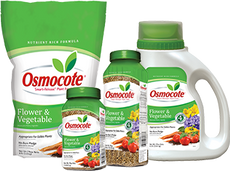
We know that picking the right fertilizer can be intimidating. You go to the garden center, find the fertilizers and some across an aisle with a ton of choices. Here's a guide to help you make the right choice for your needs.
Dry Fertilizers
These are put down as a powder or pellet. They break down and release their fertilizer slowly. This is great to use when plants aren't in desperate immediate need of food, but we want to make sure they have food for the future. They are slow release by their nature. Many lawn foods are dry because they create long consistent greening. There are also dry fertilizers for flowers and vegetables.
Liquid Fertilizers
These are applied as a liquid. They are sold as liquid concentrates or powders that should be mixed with water before applying to the plants. Be sure to follow the directions on proper dilution to get the right dosage. The good thing is that the nutrients are immediately available for the plant to absorb so you get fast results. The down side is they don't stick around for long and need to be re-applied more frequently. Although liquids are great for sick, malnourished plants that need a big boost right now, they can also be used as a regular fertilizer on all plants. Generally, they should be applied weekly if they are the only fertilizer used.
Specialty Fertilizers
Some plants have special nutritional requirements. There are specific fertilizers made for them. These can be liquids or dry. Think of it as age appropriate vitamins. Some examples are fertilizers for acid loving plants like evergreens, hydrangeas and rhododendrons. There are also specific fertilizers for roses, vegetables, bulbs, and new transplants.
Organic Fertilizers
Organics are sourced from naturally occurring sources of nutrients. They are typically made of dead plants, animals, or manure from some source. They are usually dry and slow release because they have to break down before the nutrients are available to the plant. The concentration of nutrients also tends to be lower so their application rates are often higher. Used consistently, they can help build up the health of the soil and add organic matter.
Conventional (Mineral) Fertilizers
Conventional fertilizers are usually man made and much higher strength. The nutrients are immediately available to the plant which makes for fast results. Many liquid fertilizers are conventional. They're great for giving sick plants a big boost as well as being used as a regular fertilizer every week.
Hopefully this helps you decide which fertilizer you need for your garden this year. If you're still confused, don't worry! Just ask one of our plant doctors and we're more than happy to help show you the best one for you!























Comments